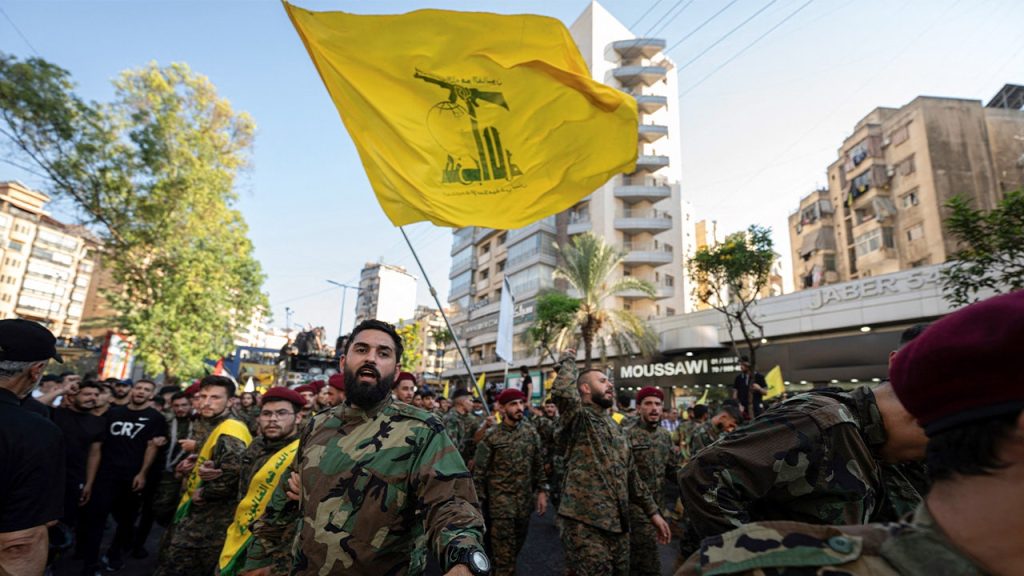Hezbollah launched 30 rockets from Lebanon into northern Israel early Monday, resulting in no casualties, according to the Israeli Defense Forces (IDF). The attack was seen as a response to the recent assassination of Hamas leader Ismail Haniyeh in Tehran, with fears that the conflict could spread beyond Gaza into Lebanon. The IDF strike on Hezbollah militants followed an attack that killed a dozen youths in Israel’s Golan Heights, with Hezbollah denying any involvement while the IDF identified Faud Shukr as the mastermind behind the attack. Shukr was confirmed by Hezbollah as its “No. 2” commander, known for his involvement in the 1983 Marine barracks bombing in Beirut.
The U.S. Defense Secretary Lloyd Austin has ordered a guided missile submarine to the Middle East and instructed the USS Abraham Lincoln aircraft carrier strike group to move more quickly to the area in response to escalating tensions in the region. The U.S. and other allies are working towards achieving a cease-fire agreement between Israel and Hamas to de-escalate the situation following the assassinations of Haniyeh and Shukr. Maj. Gen. Pat Ryder, Pentagon press secretary, emphasized America’s commitment to defending Israel and expressed concerns about the increasing regional tensions, leading to a strengthened U.S. military force posture in the Middle East. Hezbollah has been engaged in intensified fighting with Israeli forces in recent weeks, raising concerns about the potential spread of conflict beyond Gaza.
Hezbollah’s rocket attack from Lebanon into northern Israel did not result in any injuries, as confirmed by the IDF. The attack was seen as a retaliatory response to the assassination of Hamas leader Ismail Haniyeh in Tehran, escalating tensions in the region. The IDF targeted Hezbollah militants following an attack in Israel’s Golan Heights that killed several youths, with Hezbollah denying involvement while the IDF identified Faud Shukr as the mastermind behind the attack. Shukr’s role as Hezbollah’s “No. 2” commander was confirmed late last month, with his history of involvement in the 1983 Marine barracks bombing adding to the complexity of the situation.
In light of the escalating tensions in the Middle East, U.S. Defense Secretary Lloyd Austin has taken steps to strengthen the military force posture in the region by deploying a guided missile submarine and speeding up the movement of the USS Abraham Lincoln aircraft carrier strike group to the area. The U.S. and its allies are working towards achieving a cease-fire agreement between Israel and Hamas, following the assassinations of key figures like Haniyeh and Shukr. Maj. Gen. Pat Ryder reiterated America’s commitment to defending Israel and maintaining a strong military presence in the region to address the rising regional tensions. The situation continues to be closely monitored, with concerns about the potential spread of conflict beyond Gaza into Lebanon.
As tensions escalate in the Middle East, Hezbollah’s rocket attack from Lebanon into northern Israel served as a response to the assassination of Hamas leader Ismail Haniyeh in Tehran, with fears of broader conflict involving Hezbollah in Lebanon. The IDF’s retaliatory strike on Hezbollah militants was prompted by an attack in Israel’s Golan Heights that resulted in the deaths of several youths, attributed to Faud Shukr as the mastermind behind the incident. U.S. Defense Secretary Lloyd Austin’s deployment of military resources to the region reflects the increasing concerns about regional tensions and the need to defend Israel amidst the growing instability in the area.
The rocket attack launched by Hezbollah into northern Israel did not cause any casualties, but highlighted the ongoing tensions in the region following the assassinations of key figures like Hamas leader Ismail Haniyeh and Hezbollah’s Faud Shukr. The IDF’s response to the escalating conflict, including targeted strikes on Hezbollah militants, is part of efforts to maintain security and contain the spread of violence beyond Gaza into Lebanon. The deployment of a guided missile submarine and the speedier movement of the USS Abraham Lincoln aircraft carrier strike group by the U.S. Defense Secretary underscore the seriousness of the situation and the need for a coordinated international response to de-escalate tensions and prevent further conflict in the region.


